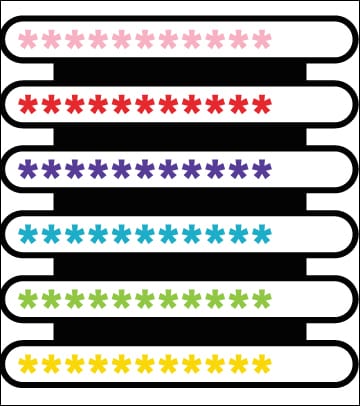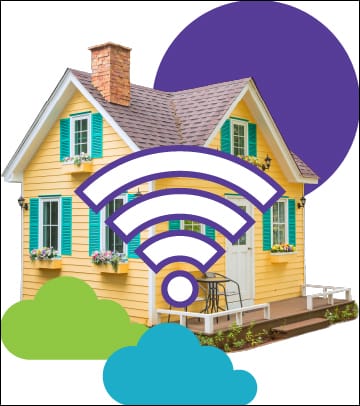With wireless networks, your devices are connected via radio signals instead of using cables or wires. They bring flexibility, convenience and, unfortunately, increased risk.
Keep your Wi-Fi to yourself
Your Wi-Fi network is the gateway to all your connected devices. Making sure your Wi-Fi is secure doesn’t just prevent other people from using your internet, but it also helps keep your devices and your data safe from potential intruders.
Your computers, phones and maybe even your lightbulbs share a Wi-Fi network; it’s important to make sure your network is as secure as possible.
Risks to you
Hacking
Hacking is any action taken to get unauthorized access to a device or account.
If a cyber criminal hacks into your Wi-Fi network, they can gain access to your internet, and any devices and data on that network, including your browser history, passwords and files.
Wi-Fi theft
If your Wi-Fi network isn’t secure, anyone within range can access your personal internet connection and your devices. Trespassers can steal your bandwidth and usage capacity to download large files like movies or games, leaving you stuck with a big bill.
Criminal charges
If someone accesses your Wi-Fi network and uses it for illegal activities, you could be held accountable — even if you weren’t aware of it.
Use your private network safely

Ditch the defaults
Many cyber criminals are familiar with the default login information on Wi-Fi routers. Be sure to change your network name and password to prevent someone from stumbling onto your network.

Use a passphrase, or a strong password
We recommend that you use passphrases, as they are longer yet easier to remember than a password of random, mixed characters. A passphrase is a memorized phrase consisting of mixed words with or without spaces. For example: LampFloorPlantDoor.
If your router requires a traditional password, make sure it’s strong. A strong password should include:
- At least eight characters
- A combination of upper- and lower-case letters and at least one number
- At least one character that isn't a letter or number, like !, # or $.

Limit area coverage
Try to keep your coverage area limited to your house by placing your router as close to the middle of your space as possible, rather than placing it near windows.

Update your devices
Make sure that every device on your network, including routers, computers, smartphones, and smart devices, have updated software and operating systems to keep your entire network protected.






